Reaching out to overcome diabetic eye disease in the Philippines
The REACH-DR project, led by Professor Tunde Peto at Queen’s University Belfast in the UK in collaboration with the Philippines team, has been established to share UK expertise and enable sustainable diabetic eye screening programmes in the Philippines
TALK LIKE AN OPHTHALMOLOGIST
DIABETES – a condition that causes an individual’s blood sugar levels to become too high
DIABETIC MACULOPATHY – an eye complication resulting from diabetes that causes the central part of the retina to become swollen because of the leakage of fluid from the blood vessels
RETINA – light-sensitive layer of tissue at the back of the eye
RETINOPATHY – disease or damage to the retina, causing loss of vision or visual impairment
TELEOPHTHALMOLOGY – eye care delivered through digital medical equipment and telecommunications
One of the amazing things about research is that it not only tackles academic challenges and adds to human knowledge, but it also has the power to improve people’s lives – an impact even more significant when researchers share their skills and successes with others. Which is exactly what the Philippine Eye Research Institute, Professor Tunde Peto and a team of researchers based at Queen’s University Belfast in the UK are doing with the UK-Philippines Remote Retinal Evaluation Collaboration in Health: Diabetic Retinopathy (REACH-DR) project.
Diabetes can lead to a wide range of complications, many of which affect blood vessels around the body. For instance, retinopathy happens when diabetes damages the blood vessels inside the eyes. This can subsequently lead to diabetic maculopathy, a severe condition where patients may experience impaired vision such as blurring and image distortion.
However, in the majority of instances, there are no visual symptoms until it is too late. It is for this reason that diabetic eye screening is of great importance – the earlier that changes are identified, the better the chance of saving a person’s sight.
Diabetic eye screening programmes (DESP) in the UK are among the most successful in the world, particularly with the advent of teleophthalmology eye evaluations, and Tunde and her team want to ensure the REACH-DR project enables the Philippines to achieve a similar level of care. “Advances in telemedicine using remote retinal cameras mean that we now have the technology to transfer our knowledge to developing nations with limited resources and challenging infrastructure,” says Tunde.
THE CHALLENGES
The Philippines has 7,641 islands and more than 100 million people which makes evaluation of diabetic eye disease very challenging. “Not all areas have the necessary equipment for eye examinations and the transportation of machines and specialists is challenging if a DESP it to be deployed on a national scale,” says Tunde. “Then there is the lack of trained eye health professionals; there are only about 1,600 ophthalmologists in the country where around 4 to 5 million people are estimated to have diabetes.”
THE SOLUTION
A teleophthalmology eye evaluation involves taking photographs of the patient’s eyes in different community-based locations and sending these images to a central database. The images are evaluated remotely at a reading centre by trained image graders who send the results back to the patient and their doctors. Thus, if the team can establish a means of performing teleophthalmology eye evaluations using mobile retinal cameras, they can overcome the geographical and practical challenges that exist in the Philippines.
COLLABORATION
The UK national DESP is one of the most successful globally – since 2014, diabetic eye disease is no longer the leading cause of severe sight impairment in England and Wales. The UK team is therefore translating this to the Philippines. “Having properly trained personnel is crucial in deploying a DESP. The REACH-DR project, through the UK partners, supported the retinal imager and grader training and certifications. Aside from training, the framework for the pilot DESP in the Philippines was developed using UK standards and best practices,” explains Tunde. “The UK partner also provides continuous programme quality assurance to ensure that the DESP operates at the highest standards. The exchange of personnel will help with training.”
The UK team’s colleagues from the Philippine Eye Research Institute are involved in the planning and delivery of all aspects of the project from the very beginning. The two teams have been working together on the design of the programme, the delivery of the training and quality assurance, and thinking about how to include artificial intelligence in the screening programme.
THE LONG-TERM
The goal of the REACH-DR project is that relevant decision makers and government institutions in the Philippines will have specific policies in place to enable long-term funding that sustains DESP appropriately. The Philippines is aiming to achieve a reduction of blindness from diabetic eye disease, mirroring the UK results.
The next steps of the project include presenting the results to the relevant stakeholders, including patient groups, applying for further funding and expansion of the pilot programme to involve more regions in the Philippines. For the programme to be successful in the long term the team will also need to train administrators, policymakers, AI-specialists and quality assurance personnel, so a DESP can support a cadre of professionals, rather than just those with a clinical background.
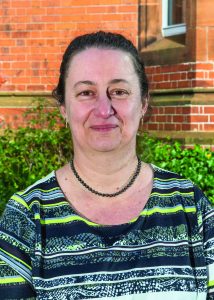 PROFESSOR TUNDE PETO
PROFESSOR TUNDE PETO
Clinical Ophthalmology, School of Medicine, Dentistry and Biomedical Sciences, Centre for Public Health, Queen’s University Belfast, UK
FIELD OF RESEARCH: Ophthalmology
RESEARCH PROJECT: Establishing a sustainable model for diabetic retinopathy screening programmes in the Philippines
FUNDER: UK Research and Innovation – Medical Research Council
ABOUT OPHTHALMOLOGY
Ophthalmology is a branch of medicine concerned with the diagnosis, treatment and prevention of diseases that affect the eyes and vision. There are a vast number of people from medical and non-medical backgrounds working in the field of ophthalmology and it is a diverse field that offers job opportunities for people with varying interests and capabilities.
For instance, clinical professionals are involved in detecting and managing ocular disease, while non-medical staff may be involved in screening for ocular pathology, capturing ocular images using different imaging modalities, working with people with visual loss, quality assurance, health-economics and eye care research.
As the REACH-DR project shows, there are a range of opportunities within the field that can benefit countries around the world. This is a field where you can make a real difference to the quality of people’s lives.
The next generation of ophthalmologists will face the challenge of examining and treating a huge wave of people with not only diabetic eye disease but other conditions such as age-related macular degeneration and refractive errors such as short and long-sightedness.
Good communication and interaction with patients are crucial in the field of ophthalmology, however the ever-changing technological landscape, including virtual clinics and artificial intelligence, may mean that there is less in-person contact. Consequently, another challenge will be how to use these technological advances while remaining empathic and communicating well with patients.
The teams involved in ophthalmology are varied – from administrators to IT personnel and technicians, and optometrists, nurses and doctors. Being a good team-player will be a crucial characteristic of any successful entrant into the field.
Reference
https://doi.org/10.33424/FUTURUM209
DIABETES – a condition that causes an individual’s blood sugar levels to become too high
DIABETIC MACULOPATHY – an eye complication resulting from diabetes that causes the central part of the retina to become swollen because of the leakage of fluid from the blood vessels
RETINA – light-sensitive layer of tissue at the back of the eye
RETINOPATHY – disease or damage to the retina, causing loss of vision or visual impairment
TELEOPHTHALMOLOGY – eye care delivered through digital medical equipment and telecommunications
Diabetes can lead to a wide range of complications, many of which affect blood vessels around the body. For instance, retinopathy happens when diabetes damages the blood vessels inside the eyes. This can subsequently lead to diabetic maculopathy, a severe condition where patients may experience impaired vision such as blurring and image distortion.
However, in the majority of instances, there are no visual symptoms until it is too late. It is for this reason that diabetic eye screening is of great importance – the earlier that changes are identified, the better the chance of saving a person’s sight.
Diabetic eye screening programmes (DESP) in the UK are among the most successful in the world, particularly with the advent of teleophthalmology eye evaluations, and Tunde and her team want to ensure the REACH-DR project enables the Philippines to achieve a similar level of care. “Advances in telemedicine using remote retinal cameras mean that we now have the technology to transfer our knowledge to developing nations with limited resources and challenging infrastructure,” says Tunde.
THE CHALLENGES
The Philippines has 7,641 islands and more than 100 million people which makes evaluation of diabetic eye disease very challenging. “Not all areas have the necessary equipment for eye examinations and the transportation of machines and specialists is challenging if a DESP it to be deployed on a national scale,” says Tunde. “Then there is the lack of trained eye health professionals; there are only about 1,600 ophthalmologists in the country where around 4 to 5 million people are estimated to have diabetes.”
THE SOLUTION
A teleophthalmology eye evaluation involves taking photographs of the patient’s eyes in different community-based locations and sending these images to a central database. The images are evaluated remotely at a reading centre by trained image graders who send the results back to the patient and their doctors. Thus, if the team can establish a means of performing teleophthalmology eye evaluations using mobile retinal cameras, they can overcome the geographical and practical challenges that exist in the Philippines.
COLLABORATION
The UK national DESP is one of the most successful globally – since 2014, diabetic eye disease is no longer the leading cause of severe sight impairment in England and Wales. The UK team is therefore translating this to the Philippines. “Having properly trained personnel is crucial in deploying a DESP. The REACH-DR project, through the UK partners, supported the retinal imager and grader training and certifications. Aside from training, the framework for the pilot DESP in the Philippines was developed using UK standards and best practices,” explains Tunde. “The UK partner also provides continuous programme quality assurance to ensure that the DESP operates at the highest standards. The exchange of personnel will help with training.”
The UK team’s colleagues from the Philippine Eye Research Institute are involved in the planning and delivery of all aspects of the project from the very beginning. The two teams have been working together on the design of the programme, the delivery of the training and quality assurance, and thinking about how to include artificial intelligence in the screening programme.
THE LONG-TERM
The goal of the REACH-DR project is that relevant decision makers and government institutions in the Philippines will have specific policies in place to enable long-term funding that sustains DESP appropriately. The Philippines is aiming to achieve a reduction of blindness from diabetic eye disease, mirroring the UK results.
The next steps of the project include presenting the results to the relevant stakeholders, including patient groups, applying for further funding and expansion of the pilot programme to involve more regions in the Philippines. For the programme to be successful in the long term the team will also need to train administrators, policymakers, AI-specialists and quality assurance personnel, so a DESP can support a cadre of professionals, rather than just those with a clinical background.
 PROFESSOR TUNDE PETO
PROFESSOR TUNDE PETO
Clinical Ophthalmology, School of Medicine, Dentistry and Biomedical Sciences, Centre for Public Health, Queen’s University Belfast, UK
FIELD OF RESEARCH: Ophthalmology
RESEARCH PROJECT: Establishing a sustainable model for diabetic retinopathy screening programmes in the Philippines
FUNDER: UK Research and Innovation – Medical Research Council
ABOUT OPHTHALMOLOGY
Ophthalmology is a branch of medicine concerned with the diagnosis, treatment and prevention of diseases that affect the eyes and vision. There are a vast number of people from medical and non-medical backgrounds working in the field of ophthalmology and it is a diverse field that offers job opportunities for people with varying interests and capabilities.
For instance, clinical professionals are involved in detecting and managing ocular disease, while non-medical staff may be involved in screening for ocular pathology, capturing ocular images using different imaging modalities, working with people with visual loss, quality assurance, health-economics and eye care research.
As the REACH-DR project shows, there are a range of opportunities within the field that can benefit countries around the world. This is a field where you can make a real difference to the quality of people’s lives.
The next generation of ophthalmologists will face the challenge of examining and treating a huge wave of people with not only diabetic eye disease but other conditions such as age-related macular degeneration and refractive errors such as short and long-sightedness.
Good communication and interaction with patients are crucial in the field of ophthalmology, however the ever-changing technological landscape, including virtual clinics and artificial intelligence, may mean that there is less in-person contact. Consequently, another challenge will be how to use these technological advances while remaining empathic and communicating well with patients.
The teams involved in ophthalmology are varied – from administrators to IT personnel and technicians, and optometrists, nurses and doctors. Being a good team-player will be a crucial characteristic of any successful entrant into the field.
MEET THE REACH-DR TEAM

PROFESSOR TUNDE PETO
PRINCIPAL INVESTIGATOR
My role is to lead and manage the programme, enabling the Philippines to set up a sustainable model for diabetic eye screening programmes (DESPs). This will ensure knowledge transfer on all levels: from administration to the screening process, to providing treatment.
I have been committed to studying and treating chronic eye disease since completing my medical degree. After finishing my PhD and ophthalmology training, I moved to Moorfields Eye Hospital in London, focusing on diabetes-related complications. I am now Professor of Clinical Ophthalmology at Queen’s University Belfast (QUB) and have worked on many large population studies and multi-centre clinical trials while remaining a practicing ophthalmologist.
As the clinical lead for the Diabetic Eye Screening Programme in Northern Ireland, I have been involved with the UK’s National Diabetic Retinopathy Screening Programme. Finding and treating patients early in the disease process reduces the rate of diabetes-related visual loss, but is expensive, which is where telemedicine can step in.
I always wanted to pursue science and I loved both the regular human contact and long-term relationships with patients with chronic diseases. This, along with the surgical challenge, makes ophthalmology perfect for me. I love that it involves maths, science, technology, statistics, surgery and lots of communication with patients, their family and their carers.
One of my main motivations is the importance of collaboration and a joined-up approach to research. I work with large teams involving not only those working in eye-care, but also in healthy ageing and dementia care. These are new frontiers and I never stop learning.
Not giving up and being open minded have made me successful. It is important to never look down on anyone and to be appreciative of help.
I have been involved in a number of international developmental activities, such as being part of the team for the Queen’s Diamond Jubilee Trust Fund’s Diabetic Eye Screening in the Commonwealth. Our work will leave a lasting legacy in the countries involved.
TUNDE’S TOP TIPS
01 Always listen, know yourself and your limitations but use your skills to the best of your ability.
02 Sometimes life presents opportunities you never knew existed, so keep your eyes open!
03 Be pro-active in learning and work in different teams and cultures if you can, these experiences will always teach you something new.
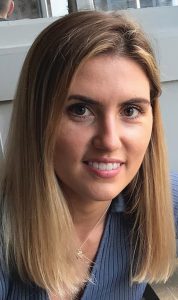
DR KATIE CURRAN
RESEARCH OPTOMETRIST
Part of my role in the Queen’s University Belfast team is to ensure transfer of learning. I am delighted to help strengthen the REACH-DR programme with my expertise.
During my PhD, I worked in Vietnam and Bangladesh where most of my work focused on strengthening diabetic retinopathy services. I recently embarked in a role as a Wellcome Trust research fellow at QUB and continue to work on retinal diseases.
I always had a keen interest in science subjects in school and always wanted to work as a healthcare professional. My uncle lost his sight at a young age, and I completed my work experience in an optician’s when I was 16. Following my work experience, I was keen to pursue a career in optometry.
After four years working as an optometrist, I decided to take a career break to explore South-East Asia. Although I enjoyed working as an optometrist, I wanted a career that would offer some flexibility and allow me to be involved in eye care research. I completed a master’s in public health and a PhD at QUB which gave the opportunity to pursue a career in academia, whilst maintaining my role as an optometrist on a part-time basis. This enables me to interact with patients and conduct research in my area of interest.
I have been extremely lucky to work with successful and motivational people throughout my career. Tunde provides guidance and support to me to become a successful academic whilst building on my experience as an optometrist. Her expertise as a professor and ophthalmologist is invaluable for me.
One of my main attributes that has helped me is my dedication to work. If I set out to achieve a goal, I work hard to ensure I reach that goal.
My proudest career achievement so far is completing my PhD and having the opportunity to work with international collaborators, particularly in low-middle income countries.
KATIE’S TOP TIPS
01 Developing a career that you are happy and satisfied with can take time, so be patient.
02 Many job opportunities are available, and it is important to research these carefully and seek advice from the right people.
03 We will all encounter rejections at some point in our careers and it is crucial to learn and develop from these.
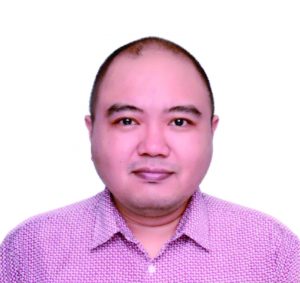
DR RECIVALL SALONGCAY
RESEARCH OPHTHALMOLOGIST
I am responsible for the planning and delivery of REACH-DR related research activities so the objectives of the project are met including liaising between the UK and the Philippine teams. I also assist Tunde with preparing reports for scientific journals, conferences and funders.
In Manila, I was a consultant ophthalmologist, specialising in retinal diseases, and a research scientist, where most of my work revolved around retinal imaging for diabetic retinopathy. I knew a research fellowship at QUB would be a good opportunity for me to learn from and collaborate with renowned experts in my field.
I always wanted to become a medical doctor; growing up I was always interested in the biological sciences. My other interests included music, books and anime.
As a trainee in ophthalmology, I realised I also wanted to pursue a career in research; I would often have questions about how we can better diagnose and treat patients with eye conditions, and how these potentially blinding diseases can be prevented.
I worked with some amazing mentors and collaborators who inspired me to pursue this career path. I learned more about teleophthalmology and diabetic retinopathy screening while working at the Philippine Eye Research Institute, and I realised that something needed to be done on a national level.
I am motivated by helping people who suffer from blinding retinal diseases and by being around individuals who share the same passion for ophthalmology and vision science as I have.
Resilience has really helped me in my career. In a clinician-scientist’s career, we encounter many setbacks and rejections – from unsuccessful study grant applications to a research experiment not producing the desired outcome – but we cannot let these derail us or make us lose focus on our goals. We need to accept these setbacks and move on, using them to inform our future decisions.
Being offered my current post at QUB is one of my proudest achievements, not only because of the wealth of opportunities that this has brought me but because I know that the work we are doing is meaningful and will make an impact on the millions of people with diabetes in my home country.
RECIVALL’S TOP TIPS
01 It is never too late or too early to become involved in science.
02 It will take time to gain expertise in your chosen scientific field, so keep that in mind when you start out and remain patient!
03 Ask questions and start searching for the answers.
EXPLORE CAREERS IN OPHTHALMOLOGY
• Tunde suggests that young people looking to pursue a career in the field of ophthalmology reach out to their local eye care professionals so they can personally discuss their ideas or questions about the field. It can also be very helpful to volunteer at an eye clinic to get a glimpse of what working in this field entails.
• The Royal College of Ophthalmologists’ website is an excellent resource for those interested in learning more about the subject.
• The basic starting salary for junior hospital doctor trainees at foundation training level is £27,000 in the first year, rising to £32,000 in the second year:
www.prospects.ac.uk/job-profiles/ophthalmologist
Tunde recommends biomedical sciences for those interested in pursuing a career in ophthalmology, as well as mathematics, statistics and data science. “In the era of computerisation, big data and artificial intelligence, these subjects are very important,” she says. “However, we cannot forget that we work closely with people, many of them elderly and visually impaired, so being a good communicator is vitally important.” So, you will find people with backgrounds in social sciences, psychology and languages working in ophthalmology teams.
Do you have a question for Tunde, Katie or Recivall?
Write it in the comments box below and Tunde, Katie or Recivall will get back to you. (Remember, researchers are very busy people, so you may have to wait a few days.)

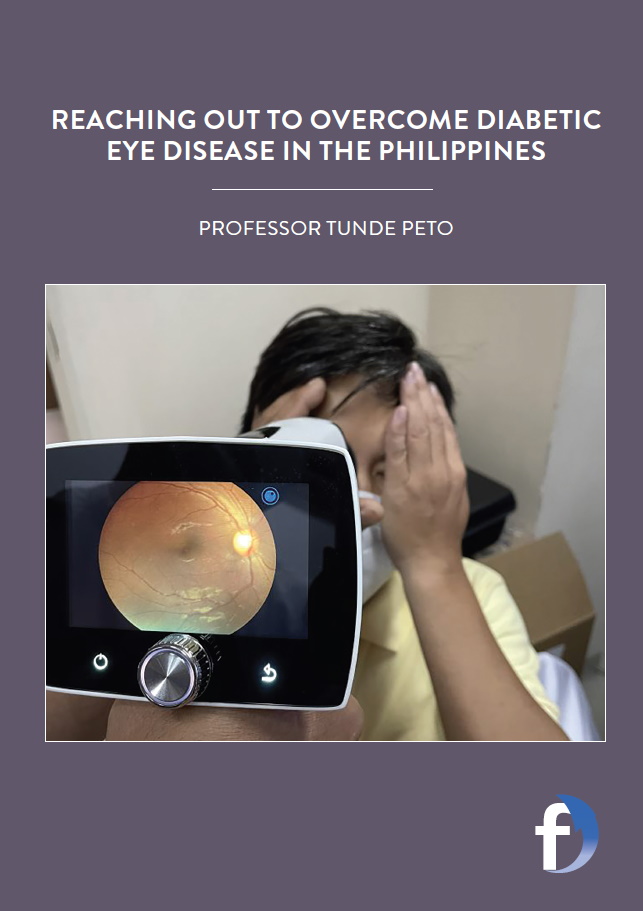
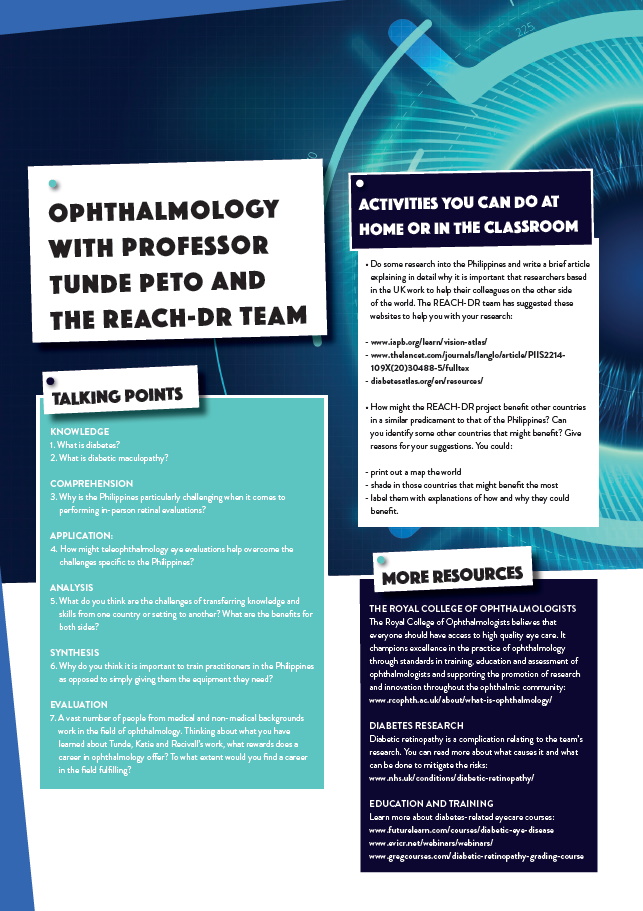
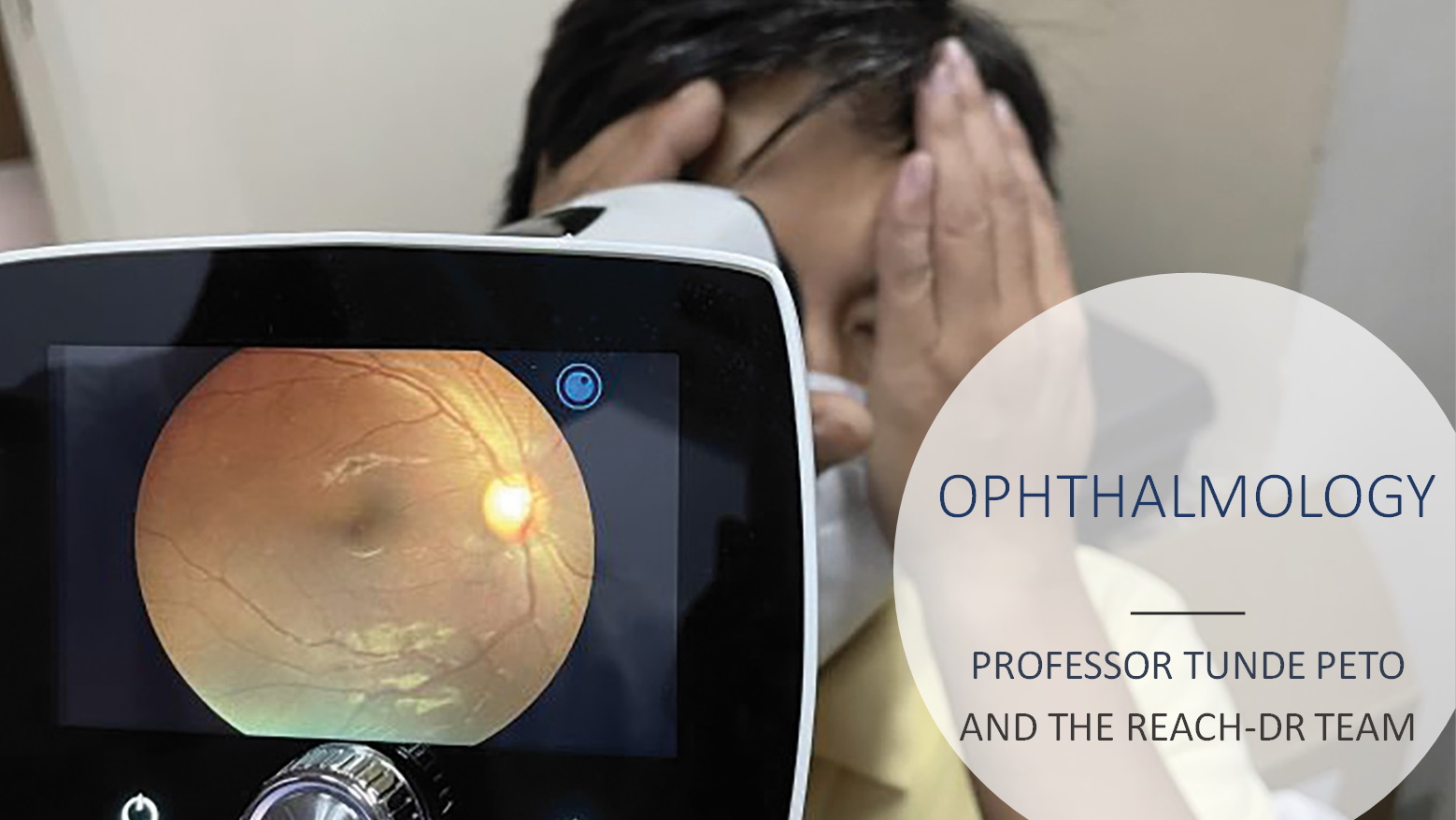
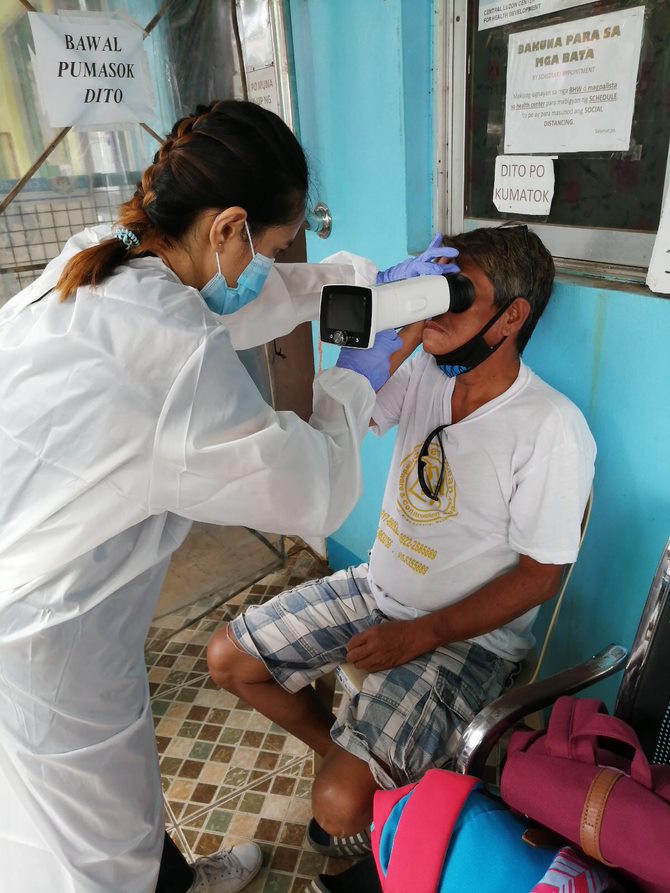
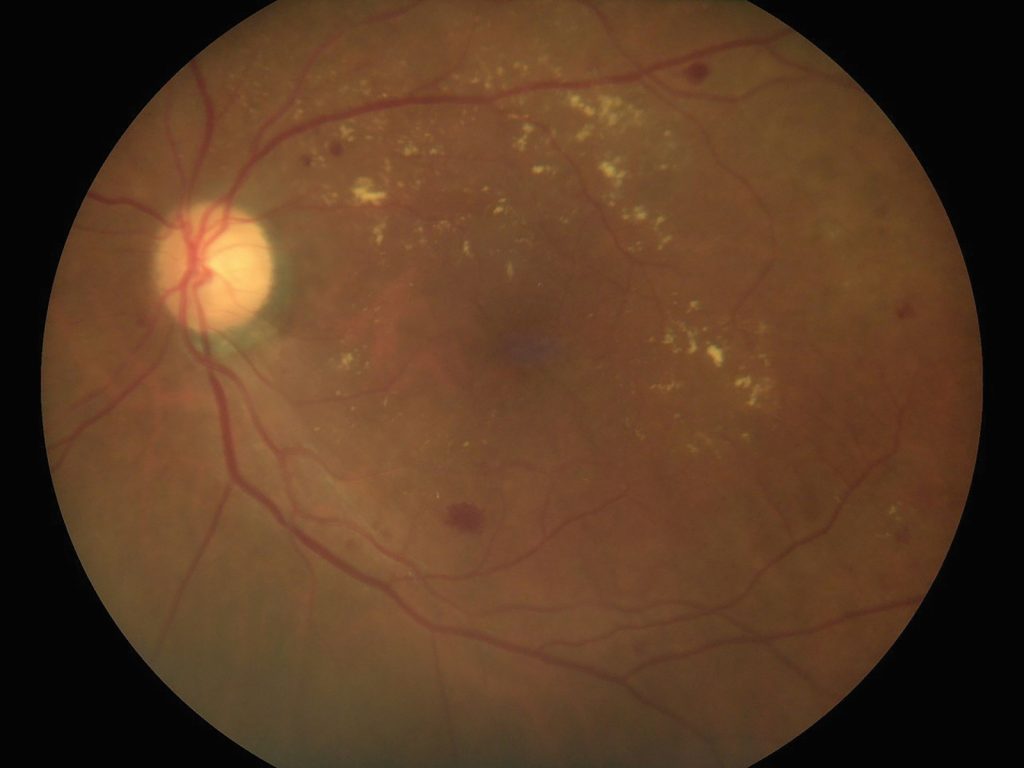
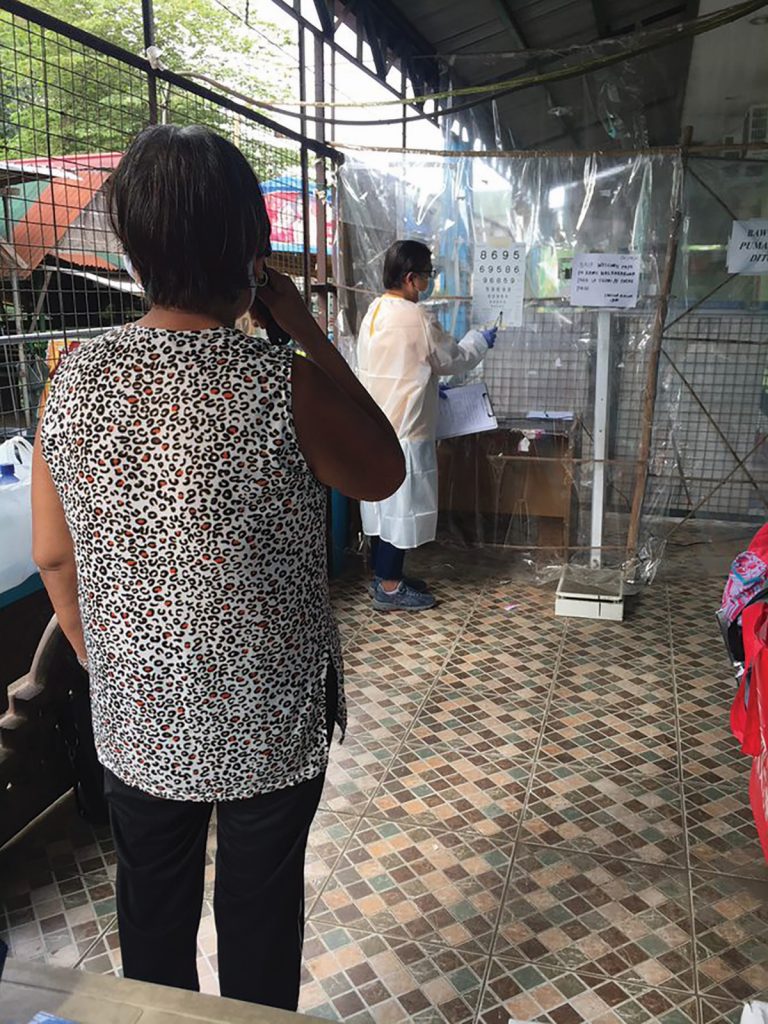
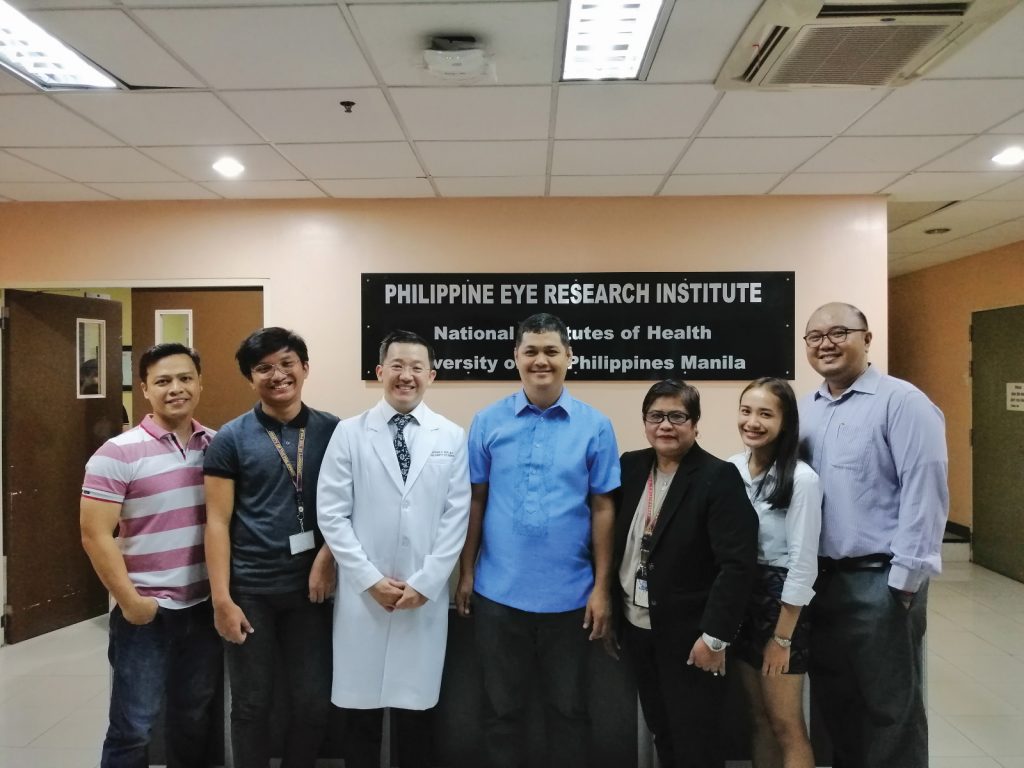

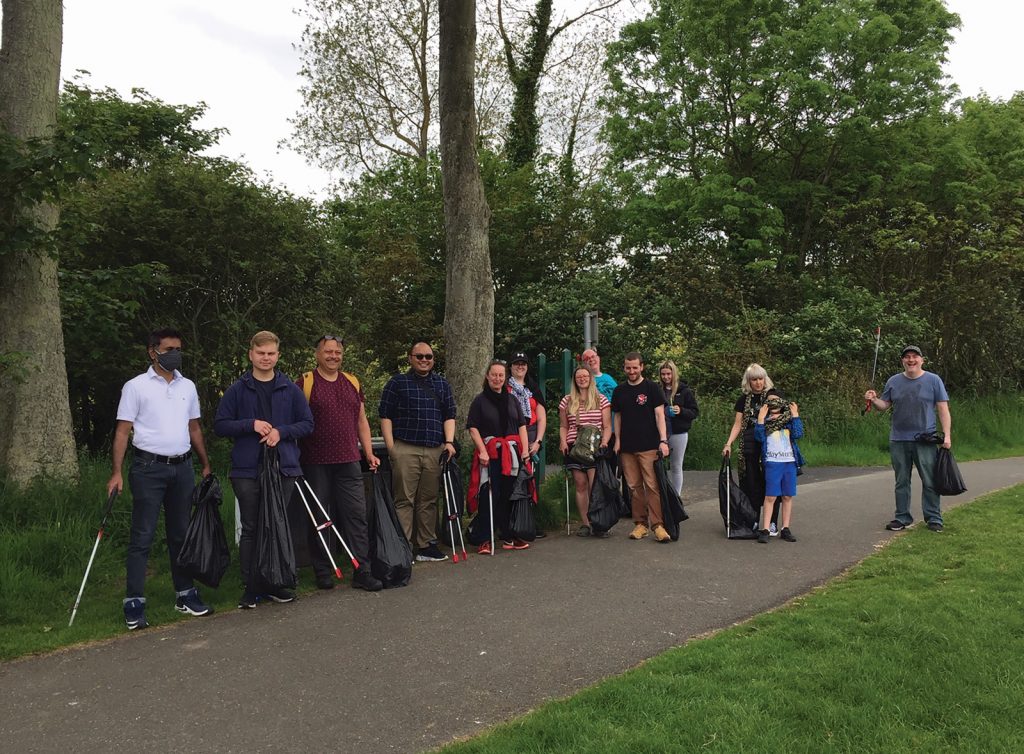
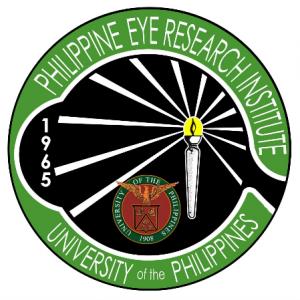


hi my name is Percival Lai, 42yr old male, I had an motor vehicle accident 2023, I had my should dislocated, and discovered that I had diabetic retinopathy, I was almost blind, until now I had troubles.in my eye sight and fatigue and troubles in my thigh and feet. After the accident I lost my job that supported my family. Thats why I dont have money to have another check up to doctors.
Hi Percival,
We are sorry to hear of your circumstances and wish you all the best.
Futurum Team.